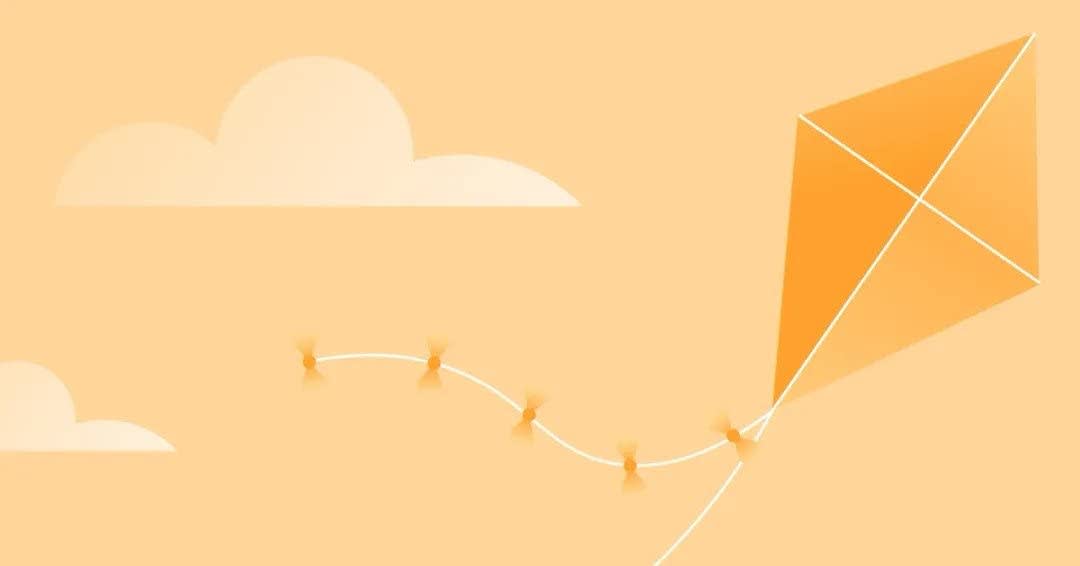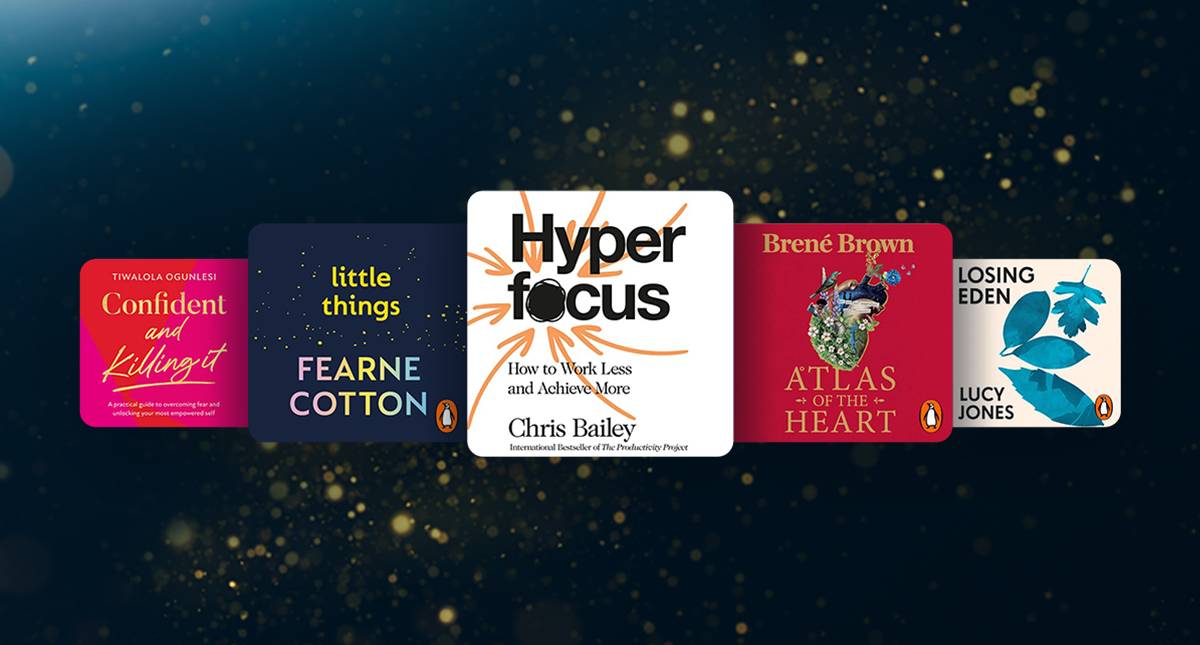Note: This interview was originally published on Audible.com.au.
Award-winning musician Clare Bowditch is no stranger to the spotlight. As someone who is used to sharing her songs with thousands of fans, she knows a few things about the role creativity can take in building a satisfying life. In her latest Audible Original, Find Your Creative Courage, Bowditch shares the most important insights she’s learned throughout her multi-decade career. Here, she uncovers what inspired her to share her message of inspiration, dives deeper into the importance of being brave and having fun, and reflects on what it’s like to perform.
Rachael Xerri: What influenced you to write Find Your Creative Courage now?
Clare Bowditch: This work was born from a deep desire to remind people that, even in difficult times, each of us has within us a "little champion" – a portable hope machine. It's a profoundly useful, affordable and enjoyable personal party trick called "creative thinking," bringing in a new question or option, which can then lead to "creative action," which transforms how we feel, quickly and usefully. With a bit of knowledge, encouragement and playfulness, we can reconnect with this truth and start experimenting in our day to day.
I made it because we seem to need reminding of these things. I do too, you see. I forget, all the time, that I have a choice in what I create in my life, or that it’s possible to transform our feelings.
"Creativity is an inherently human ability – it’s how we learn. It’s how we’ve always learned."
Fortunately, as someone who works in creative fields – musician, author and now a creativity researcher/educator – I get lots of reminders. I’m often privy to the stories and myths that fellow travellers and indeed society as a whole seem to carry about creativity and who it belongs to. One of the biggest misconceptions is that creativity is a special gift reserved for a select few, and frankly – with a little thought and education – we come to see this as both profoundly untrue and easily dismissed!
Creativity is an inherently human ability – it’s how we learn. It’s how we’ve always learned. It’s the original spark of human evolution. This is true both in the macro and the micro of the everyday lives we live. I see how many people struggle to identify with or nurture their creative side in small ways, and I want more for us!
In a nutshell, can you explain the relationship between creativity and courage and its impact on personal fulfilment?
I’ll speak from my own experience here, as I suspect it’s something many people can relate to and it’s the root of why I do this work.
Life has its challenges, especially for us adults with responsibilities. Things can feel heavy, and it’s often hard to take on one more thing, even something as small as a creative act in our everyday lives. What I like to explain is that by adding small bursts of novelty or pleasure to tasks or times we find difficult, unavoidable or mundane, we can transform how we feel in a deeply positive way.
To try new things, I need to take small risks. As humans, we tend to shy away from risk – it’s hard to justify the energy spent sometimes – but without inviting newness or possibility into our lives, we stagnate. We lose our sense of purpose, meaning or pleasure. We begin to feel that something is missing – we can become strangers to ourselves. Newness allows us to keep things interesting, and to include it, we must have the courage to take those small risks, and keep experimenting with new possibilities. Over time, with practice, we come to appreciate the compounded joy that arises from doing so.
I know this from the example of my parents – neither of whom worked as “artists,” but both of whom were inherently creative in everyday ways, which I share in this Audible Original. I also know it from my own lived experience as an adult with many obligations – raising children, making a living, caring for loved ones, keeping my home in order. In these everyday spaces, I’ve discovered that I’m most excited about life and most motivated to live courageously when I’m trying new, potentially delightful things. Whether it’s a new idea, a twist on an old recipe, dancing while I vacuum, using music to energise a dull task, or adding colour to my world in some way, these creative acts bring a spark that fuels my sense of fulfilment.
You also mention "fun" quite a few times throughout your audiobook via the lens of "funwork," which is exactly what it sounds like. I found this interesting and refreshing because "fun" is something that is often overlooked when we talk about the creative process in adulthood, even though it’s something we understand intuitively as children. Can you describe the role it’s played for you in your own work and why it’s so important to prioritise it?
Fun, excitement, feeling alive, sitting on the brink of discovering something new — these are all wonderful feelings to have living inside us and to be able to draw on in our everyday lives, but we often forget it’s in us. It is our curiosity, our desire for fun, for newness and novelty, that has played an integral role in our evolution as a species, and this can occur in very small, incremental ways. We did not learn to walk and talk in a day – this was true as children and it remains so in our adult lives, but competing demands cloud this knowledge.
"As humans, we tend to shy away from risk – it’s hard to justify the energy spent sometimes – but without inviting newness or possibility into our lives, we stagnate."
What I hope to remind my listeners and students of is that the ability to adapt – to bring in new and novel elements and combine them in potentially useful and delightful ways – is the driving impulse through which we grow from children who can't quite walk or talk or care for ourselves, to adults who can do all three. Children know how much fun we can have along the way. I like reminding myself that every time I'm having fun, I'm learning something new. "Funwork" or my "Random Creative Adventures" are invitations to play around with new and novel ideas or actions, and to remember that part of ourselves that is still keen to use fun as the method through which we evolve.
As a musician, you’re used to performing in front of an audience. How does performing your audiobooks compare to that experience?
They’re quite different, although what both performing and teaching share at their heart is, of course, our audience. It is the audience – the thought of them, and then being with them – who inspire me. I adore and share a great deal in common with them and I suspect we know each other reasonably well by now, and if not, this is my chance to introduce myself.
On stage, connecting with the audience is immediate. I’m there to entertain, they're there to feel something, and it's very clear to a seasoned performer whether this is working in the moment, and how to adjust in the moment so the audience and you have a chance to feel things together.
When it comes to my Audible Originals, what I'm really trying to do is give my listener – who I cannot necessarily see in the moment of creating the syllabus and making the recording (except in my imagination) – the knowledge and impetus to try something new for themselves, to take action, to believe that it is worth the effort and they will learn something very useful if they are willing to "give it a crack."
"It is our curiosity, our desire for fun, for newness and novelty, that has played an integral role in our evolution as a species, and this can occur in very small, incremental ways. We did not learn to walk and talk in a day – this was true as children and it remains so in our adult lives, but competing demands cloud this knowledge."
Fortunately, my years in broadcasting primed me for just such an adventure. In short, I’m speaking to an invisible listener, and trying to encourage them to take action, try something new. I have to really get to know them and their needs and the problem I'm trying to help them with in depth before I enter the studio.
If I've got it right, I'm aware of their needs and challenges and can then use that understanding to do my work well. That's the only way to really be able to imagine them there in the room with me and hope to be of any use to them.
The hope is that the listener gets to benefit from the most useful of what I’ve discovered along the way, and that in this series they discover a useful balance of theory, practise and entertainment, delivered through their ears and into their homes or lives in a way that sparks their imagination – and ultimately, and most importantly – inspires them to take action.
Once they do that, my work is done – they will have turned on that self-generation engine that propels them forward in such a glorious way, they won’t need me as their teacher any more. This inheritance is theirs, if they want it.
Is there anything else you want to share with listeners?
I am very, VERY excited to hear what you make of this thing we made for you. I can’t wait to hear stories back! HAVE FUN! KEEP SCHMOOSHING!




